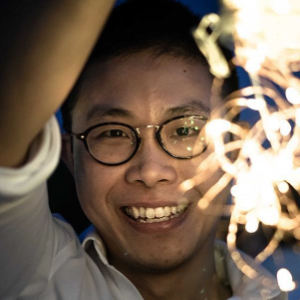Title : Efficacy of the gyroglove in modulating hand tremors in essential tremor - A self-controlled pilot study
Abstract:
Introduction:
Essential Tremor (ET) is the most common form of movement disorder, resulting in pathologic tremor of hands and other body parts. The prevalence of Essential Tremor progressively increases with age (from 0.04% among those under 20 years to 2.87% among those over 80). As life expectancy and the proportion of older people expands, a rapidly growing number of ET sufferers will certainly intensify the pressure on healthcare systems worldwide.
Current ET management is symptomatic, and typically involves pharmacotherapy, followed by surgical options where appropriate (Deep Brain Stimulation, MRI Guided Focused Ultrasound etc.). Both pharmacological and surgical options, however, face multiple challenges such as side effects, limited efficacy, poor patient acceptance and high intervention costs. Hence, there is a pressing need from both patients and clinicians for non-invasive tremor modulation options. In this study, we investigated the efficacy of the GyroGlove in modulating hand tremors in participants with ET.
Methods:
This single-blind, placebo-controlled, in-house study enrolled 15 participants with a confirmed diagnosis of ET. After signing informed consent and undergoing a screening session to assess if eligibility criteria were met, the participant was invited to attend the on-site assessment. During the on-site assessment session, four interventions were tested on the participants: i) no-device, ii) placebo glove, iii) low-intensity (low-rpm) glove and iv) full intervention (GyroGlove). The clinical effectiveness of each study arm was measured using the Volumetric Measurement Assessment (VMA), Bain & Findley Tremor ADL Scale (i.e., writing a sentence and putting a key into keyhole), and patient/clinician rated global impression of improvement (PGI-I & CGI-I) scores. The effectiveness of the GyroGlove arm was assessed against no device and placebo arms with a non-parametric Wilcoxon Signed-Rank test, followed by a post-hoc Bonferroni correction to account for multiple comparisons.
Results:
The GyroGlove showed improvement trends across all the study outcomes. Compared to the no-device arm, the GyroGlove showed fourfold improvement in the VMA test (p-value<0.1), and an ADL burden reduction of 48% (p-value<0.01) and 63% (p-value<0.1) in sentence and keyhole test scores respectively. Compared to the placebo arm, the ADL burden reduction was 40% and 54% for the sentence and keyhole tests (p-values<0.1). Similarly, compared to placebo, the patient rated scores improved by 35% (p-value<0.1) and the clinician rated scores improved by 80% (p-value<0.01). A dose-response relationship was observed between the low-intensity glove and the GyroGlove, with the GyroGlove showing better results than the low-intensity arm in all outcomes measured.
Conclusion:
Despite the small sample size, this in-house study of the GyroGlove demonstrated improvement trends across all study outcomes. The GyroGlove has potential as a tremor modulation solution in ET populations. These preliminary results should be complemented with a wider range of clinical outcomes and larger trials in the future.




